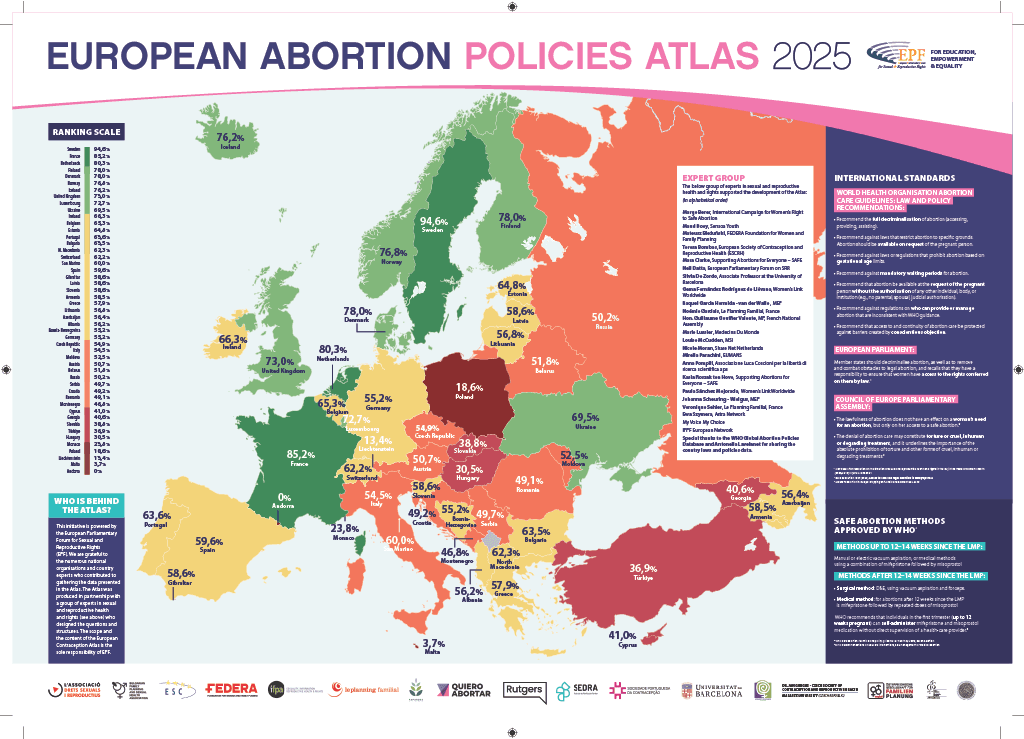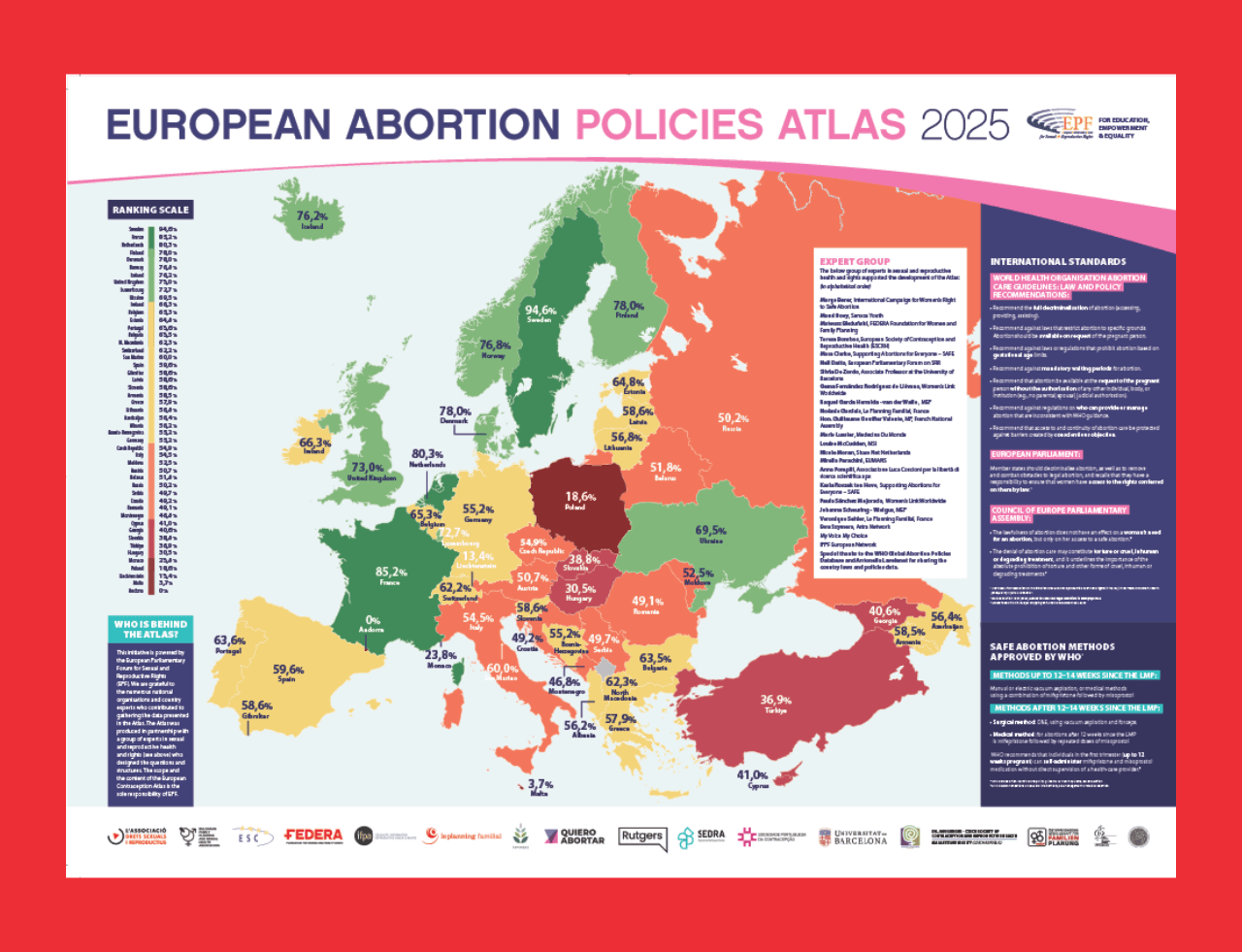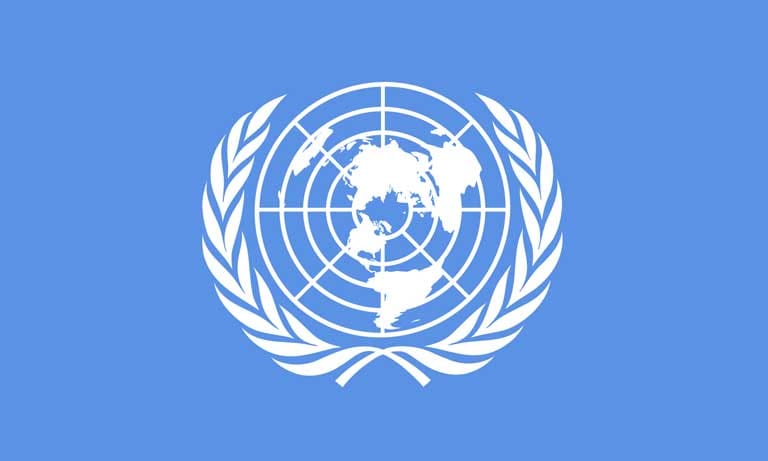On 24 September 2025, the latest edition of the European Abortion Policies Atlas was published – a report that summarizes abortion access across Europe. The more than 30 variables considered cover issues such as legislation, the quality and techniques of abortion care provided, compliance of national regulations with World Health Organization recommendations, and whether authorities engage in educational activities. The document was prepared by the European Parliamentary Forum for Sexual and Reproductive Rights (EPF), together with an international team of experts, which this year included FEDERA – the Federation for Women and Family Planning – as well as the ASTRA Network (a coalition of organizations fighting for reproductive rights in Central and Eastern Europe).
The study places Poland at the forefront of Europe’s anti-abortion camp. Importantly, the Atlas goes beyond legal provisions, offering an in-depth analysis of other variables as well:
“Polish women face not only inhumane laws, but also a system that makes enforcing the regulations even harder. The need to obtain a psychiatric certificate, repeated medical visits, costs, uncertainty about hospital admission – all of this shapes the real-life possibilities of accessing legal abortion in Poland. These are the kinds of issues that cannot be seen directly in statutes and codes, but which the Abortion Policy Atlas takes into account,” says Mateusz Bieżuński, FEDERA’s lawyer and one of the Atlas experts.
The publication’s methodology incorporates international standards, including the WHO Abortion Guidelines from 2022, as well as resolutions of the European Parliament and the Parliamentary Assembly of the Council of Europe. In the Polish context, it is worth recalling the decision of the UN Committee on the Elimination of Discrimination against Women, which last year held that Poland’s anti-abortion legislation causes “serious and ongoing violations of human rights,” leading to suffering and exposing millions of women in Poland to inhuman treatment.
The Atlas also highlights the growing regional divide, as noted by Ewa Szymera, coordinator of the ASTRA Network:
“During the preparation of the Atlas, we clearly observed differences between Eastern and Western Europe. Countries such as Austria, Finland, France and Norway have recently introduced reforms aimed at securing reproductive rights at the state level, protecting both the needs and safety of people seeking abortion. Meanwhile, Belarus and Georgia actively obstruct abortion access through medically unjustified systemic requirements; Poland has failed to liberalize its laws despite a change in government; and Slovakia even risks tightening its regulations. The polarization is stark – and deeply troubling, especially for women in our region.”
The Atlas’s recommendations include liberalizing restrictive laws, ensuring abortion is reimbursed under public health care systems, removing medically unjustified barriers to access (such as mandatory waiting periods or psychological consultations), and countering disinformation on reproductive rights. Meanwhile, Polish authorities have effectively given up: in August last year Prime Minister Donald Tusk officially announced that “there will be no majority for abortion” and ended work on legal reforms.
“Poland as a brown stain in the middle of the European map should be a glaring warning – especially to a government elected with women’s votes. At FEDERA we answer calls for help every day, supporting people as they struggle with a system that does everything possible to make their lives harder. More complaints to the Patient Ombudsman, more court hearings, more stories of women harmed by Poland – this is what we will remember on 28 September, the International Safe Abortion Day,” concludes Antonina Lewandowska, FEDERA’s national advocacy coordinator.





